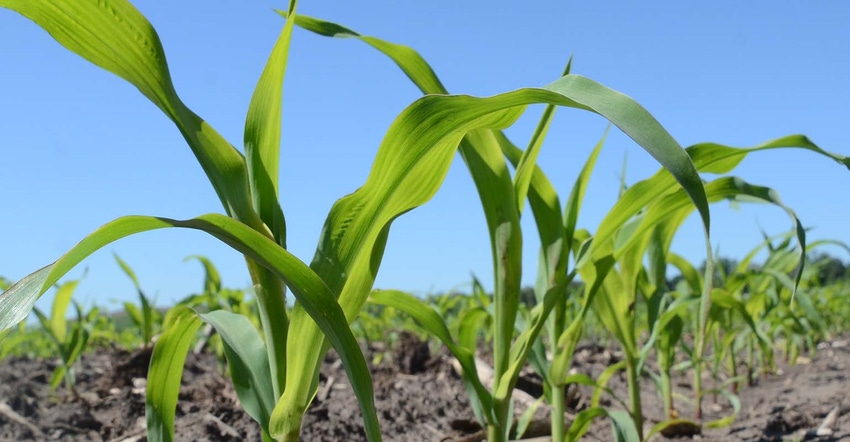March 22, 2022

There's a lot of attention focused on reducing carbon emissions often with new cultural practices including cover crops and reduced tillage. One area that could be an annual opportunity for growers is to quantify the impact of reducing nitrous oxide emissions from the farm.
"Nitrous oxide emissions have 300 times more impact as a greenhouse gas than carbon," says Adam Litle, CEO, Sound Agriculture. "This is why we're entering into a pilot program to measure the impact of reducing nitrogen emissions."
Sound Agriculture, makes Source, which when applied stimulates soil organisms to boost availability of nitrogen in the soil for plants. "We know our product can reduce nitrogen use by 25 to 50 pounds per acre with no yield impact," Litle says.
Related: Kickstarting use of a new product
Measuring the benefit of that change could be of value to farmers seeking ways to maintain yield but reduce on-farm greenhouse gas emissions. Sound Agriculture has partnered with Shell New Energies U.S. and Trimble to model the impact a product like Source might have on nitrous oxide emissions.
Trimble will be tracking the many data points needed to do the model measurements, Litle says. Shell has partnered as a buyer of potential carbon credits. "Shell is an emitter in the energy industry, and they're interested in high-quality carbon offsets available through agriculture," he notes. "Ag, right now, is nascent in that high-quality carbon credit market. Energy companies get their credits from forestry – paying people not to cut down trees."
There are more effective ways to reduce greenhouse gas emissions with nitrous oxide mission reductions being one. Litle explains the pilot will start with 1,500 acres with about six growers. It's a proof-of-concept pilot to verify the model approach of the system. Litle sees the program growing year after year. "The main thing here is incentivizing growers to reduce nitrogen when crop prices are high," he says.
What the pilot entails
As part of the pilot, Sound Agriculture will underwrite the risk to a farmer that might see yield dips by reducing N use as part of the project. But he notes this type of carbon impact has value for any farmer that uses nitrogen to raise their crop. The approach has the potential of offering a new income source even for those farmers who feel left out by current programs requiring the "additionality" of investing in cover crops or new tillage practices.
As for growth, the program has the potential to enroll 3 million acres of farmland over the next several years, reducing up to 350,000 metric tons of carbon dioxide equivalent per year by 2027, according to Sound Agriculture.
In an announcement for the new program, Chase Larson, general manager, Bestifor Farms in Kansas comments: "Reducing emissions is important, but until now it's been unclear if a change, such as reducing nitrogen-based fertilizers, would allow us to break even. By removing the financial risk, I'm eager to participate in the study and hopeful of the outcome."
Growers in the program will use Sound Agriculture's Performance Optimizer, an online tool using yield targets, nitrogen application rates and soil data to identify where Source - the company's microbiome activator – will work best in combination with nitrogen reduction
Shell will support the project through funding and technical expertise to improve nitrous oxide field sample monitoring and validation. Trimble and Viresco Solutions have joined to support the program design, data aggregation and validation to help quantify the crediting potential under different approaches.
Learn more at sound.ag.
About the Author(s)
You May Also Like






